CBSE Class 10 Science is one of the most important subjects in the board exam, and preparation requires more than just reading textbooks and completing class notes. One of the most effective tools to boost your performance is solving previous year question papers (PYQs) with answer keys.
At Deeksha Vedantu, we recommend a data-driven and exam-oriented approach. Practicing previous year papers helps students not only revise but also understand patterns, marking schemes, and the logic examiners expect. In this blog, we’ll guide you on how to use CBSE Class 10 Science previous year papers with answer keys for smart and strategic preparation.
Why Previous Year Papers Matter in Class 10 Science Preparation
Understanding the Exam Pattern and Question Trends
The CBSE board follows a specific blueprint when setting Science question papers. These patterns include a balance of objective, short answer, and long answer questions. Solving previous year papers helps students recognize:
- How marks are distributed across units like Physics, Chemistry, and Biology
- Types of questions that are frequently repeated
- The weightage of diagrams, definitions, experiments, and formulas
This understanding helps you plan your revision better and focus more on high-scoring areas.
Targeting Frequently Asked Concepts and Topics
Some chapters and topics tend to appear more often than others. For example, concepts from Light – Reflection and Refraction, Chemical Reactions and Equations, and Heredity and Evolution are commonly tested. Practicing PYQs reveals:
- Which topics are consistently asked over the years
- How questions on the same topic are phrased differently
- The conceptual depth required to answer them accurately
This allows for smarter study and less time wasted on rarely asked topics.
Building Confidence for the Final Exam
Repeated exposure to the format and question style builds familiarity. This leads to reduced exam fear and more confident answering. By solving and checking your responses with answer keys, you begin to understand how your efforts translate into marks.
Confidence comes from clarity—and clarity comes from practice.
How to Effectively Use Class 10 Science PYQs for Revision
Solve Papers by Chapter After Finishing the Syllabus
Once you complete a chapter from your Science textbook, go through related previous year questions for that chapter. This chapter-wise practice helps reinforce concepts and improves retention. For instance:
- After finishing Acids, Bases, and Salts, attempt all relevant past paper questions from the last five years
- Try writing answers in your own words to check understanding
This micro-practice ensures you’re not overwhelmed at the end of the syllabus.
Attempt Full-Length Papers in Exam Conditions
Full-length papers simulate the real board exam environment. Use a 3-hour timer, sit in a quiet space, and avoid distractions. This helps with:
- Time management skills
- Answer sequencing and planning
- Physical and mental stamina for the actual exam
It’s advisable to do at least 5 to 7 full-length papers before the boards.
Use Answer Keys for Self-Evaluation
Answer keys help you understand how examiners award marks. After completing a paper, compare your answers with official or teacher-verified keys to:
- Evaluate the accuracy and completeness of your answers
- Learn the exact format expected in CBSE exams
- Understand which steps carry marks in long questions
This helps you not just to know the answer, but to write it the way CBSE wants it.
Maintain a Mistake Tracker
Each time you solve a paper and check it with an answer key, list the mistakes you made. Categorise them into types such as:
- Conceptual misunderstanding
- Missed keywords or scientific terms
- Incomplete explanations
- Ignored diagrams or labeling errors
Over time, this mistake log helps you focus your revision on the areas where you actually lose marks.
Where to Access Authentic CBSE Class 10 Science PYQs with Answer Keys
CBSE Official Website
The CBSE website regularly updates official resources for students. You can find:
- Question papers for the last few years
- Marking schemes and model answer sheets
- Sample papers for each academic year
This is the most reliable and board-aligned source for Science PYQs.
NCERT and CBSE Guidebooks
Books by NCERT or other publishers that follow the CBSE curriculum often include:
- Chapter-wise PYQs with solutions
- Important questions predicted based on trends
- Detailed explanations of marking schemes
These resources are ideal for self-study and quick revision.
Deeksha Vedantu’s Science Practice Resources
At Deeksha Vedantu, we provide our students with:
- Curated previous year question banks for each Science chapter
- Printed and digital answer keys validated by subject experts
- Weekly practice sessions and answer-writing workshops
Our resources combine the best of CBSE official material and expert academic guidance.
Expert Tips for Solving PYQs in Science
Focus on Diagram-Based Questions
In Biology and Physics, diagrams are a key part of board answers. Practice:
- Labelled ray diagrams
- Human anatomy illustrations like the human eye or nephron
- Electric circuits with symbols
Diagrams often carry marks separately, so neatness and accuracy matter.
Practice Assertion-Reason and Case-Based Questions
CBSE has increased the number of competency-based questions in recent years. These include:
- Assertion and Reason questions that test logic
- Case-based questions that assess real-world application of concepts
Practicing PYQs that include these formats will improve your critical thinking and analytical skills.
Improve Step-Wise Presentation in Answers
In Physics and Chemistry, marks are often awarded for step-wise working. While solving PYQs, train yourself to:
- Write formula first
- Substitute values
- Calculate with correct units
- Write the final answer clearly
A well-structured answer increases your chances of scoring full marks, even if your final value is slightly off due to calculation errors.
FAQs
1. Where can I download CBSE Class 10 Science previous year papers?
You can access official PYQs on the CBSE website, through NCERT-aligned guidebooks, or by using curated resources from your school or coaching institute like Deeksha Vedantu.
2. How many previous year papers should I solve before the board exam?
Aim to solve at least five full Science papers from the last five years. You should also do chapter-wise PYQs as part of your ongoing revision.
3. Are answer keys necessary for practicing PYQs?
Yes, answer keys help you check the accuracy, presentation, and completeness of your response. They help identify gaps and improve your answer-writing technique.
4. Can solving PYQs guarantee good marks in Class 10 Science?
While PYQs alone won’t guarantee top marks, they are one of the most effective tools for identifying trends, building exam readiness, and avoiding common mistakes.
5. Does Deeksha provide previous year papers and answer keys for Science?
Yes, Deeksha offers printed and digital question paper booklets, answer keys, and mentor-led discussions to help students maximize their use of PYQs.
Conclusion
CBSE Class 10 Science previous year question papers, when used correctly, are a powerful asset in your exam preparation strategy. They reveal patterns, highlight important topics, and teach you how to present your answers in the board format.
At Deeksha Vedantu, we integrate PYQs and answer key analysis into every student’s revision plan. We don’t just focus on solving papers — we focus on understanding them, correcting mistakes, and improving performance with every attempt.
If you’re serious about scoring well in Science, make PYQs a regular part of your study routine. With consistent practice and reflection, success in Class 10 Science is within reach.
Table of Contents


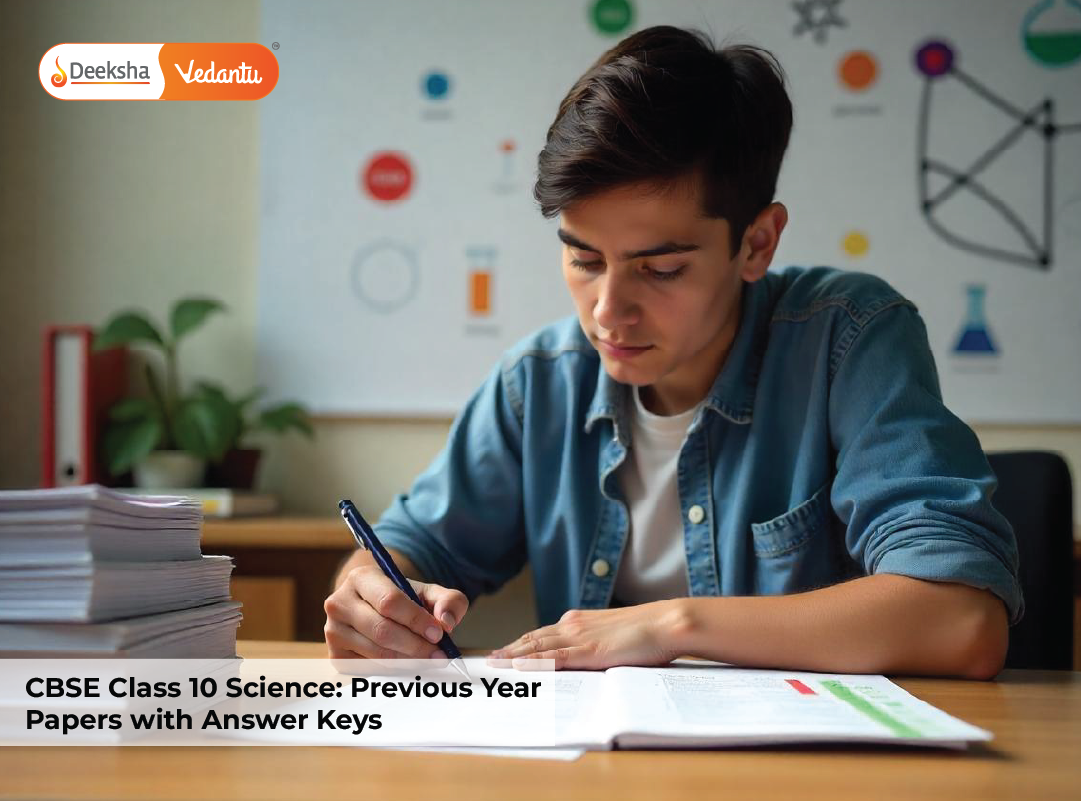






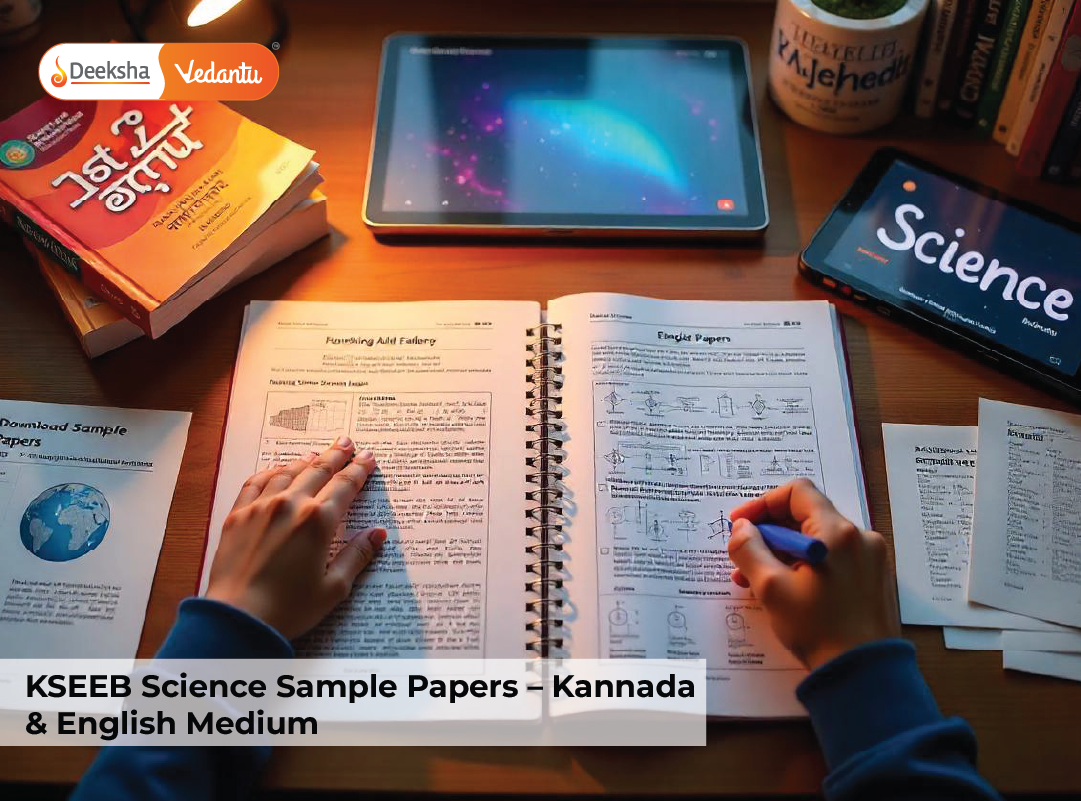
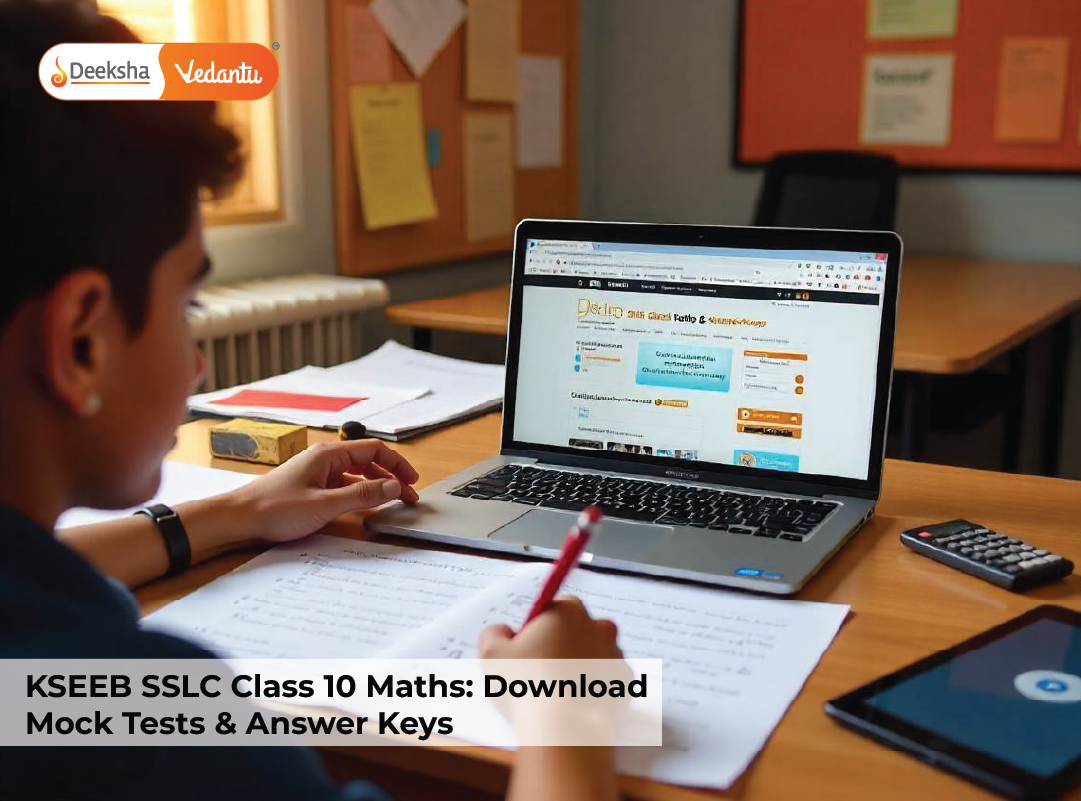
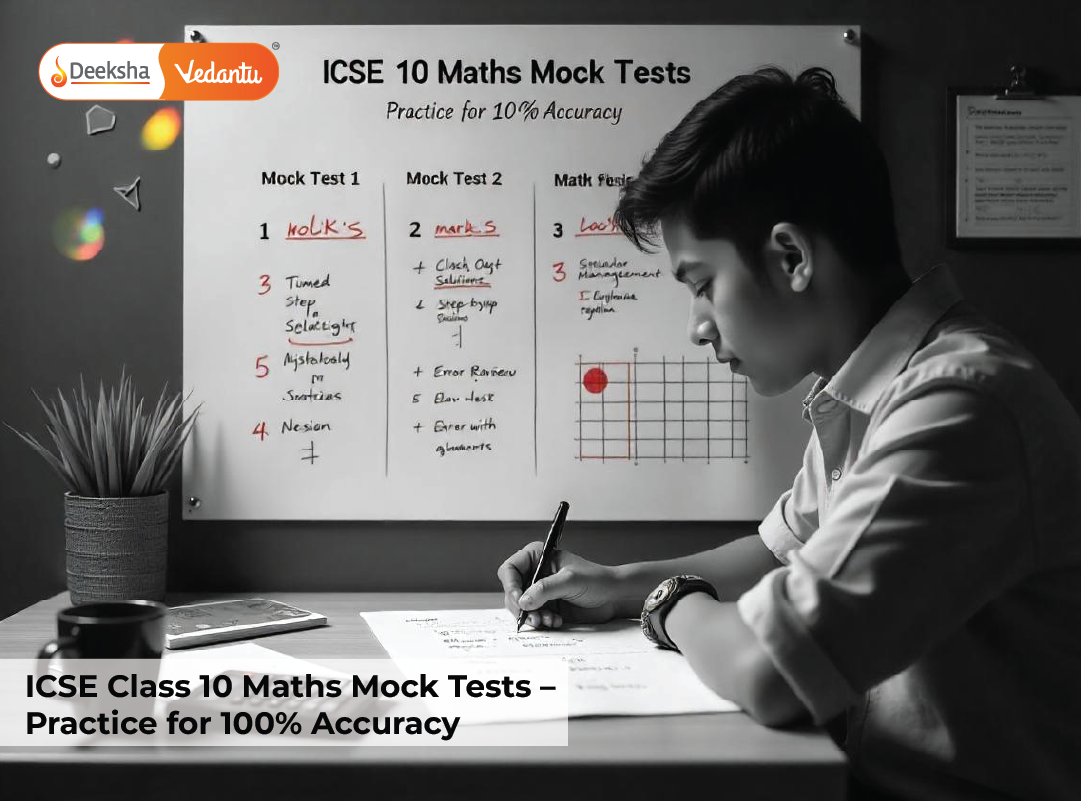
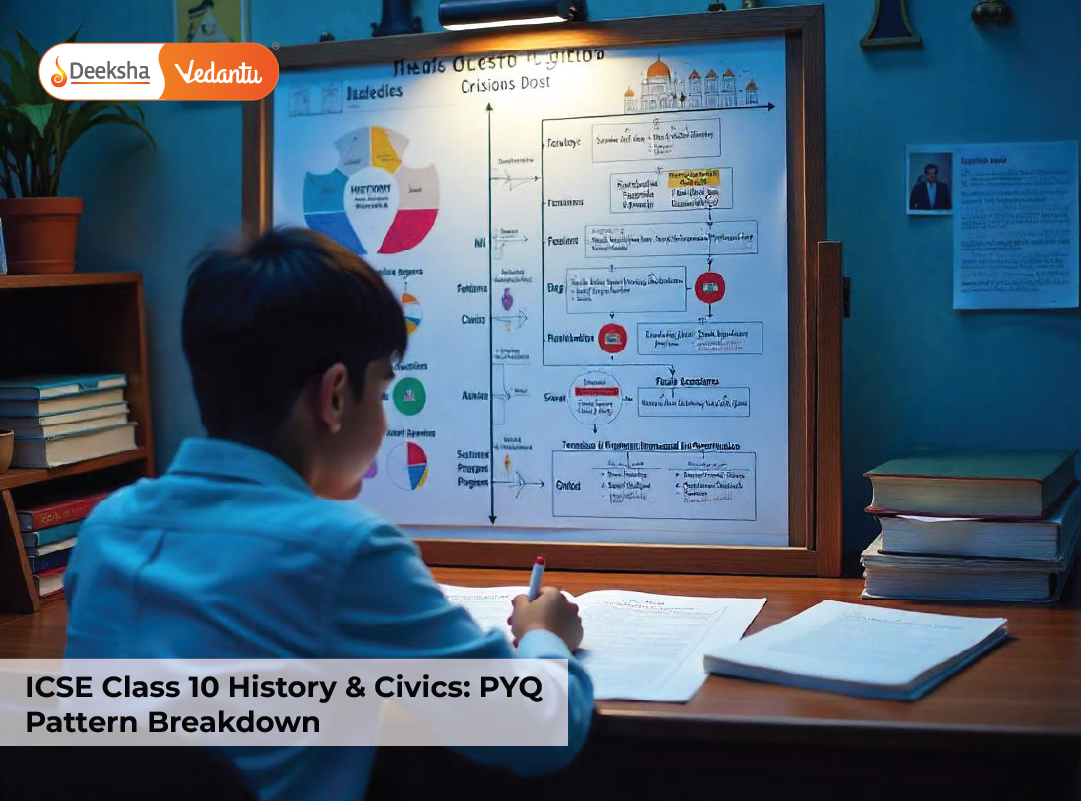


Get Social